

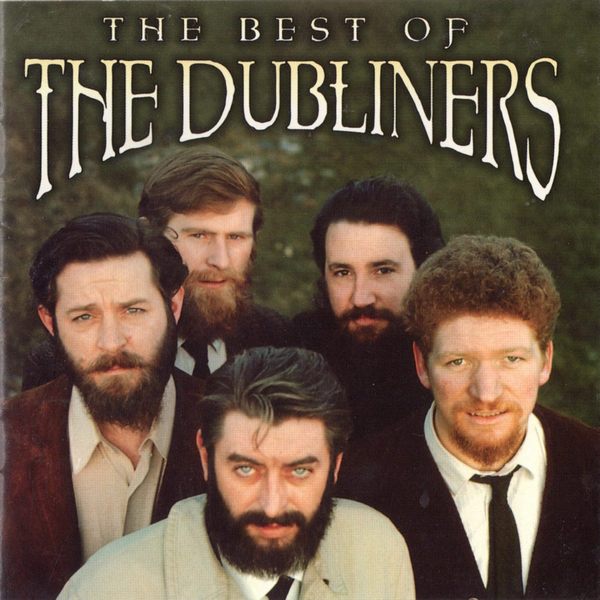 |
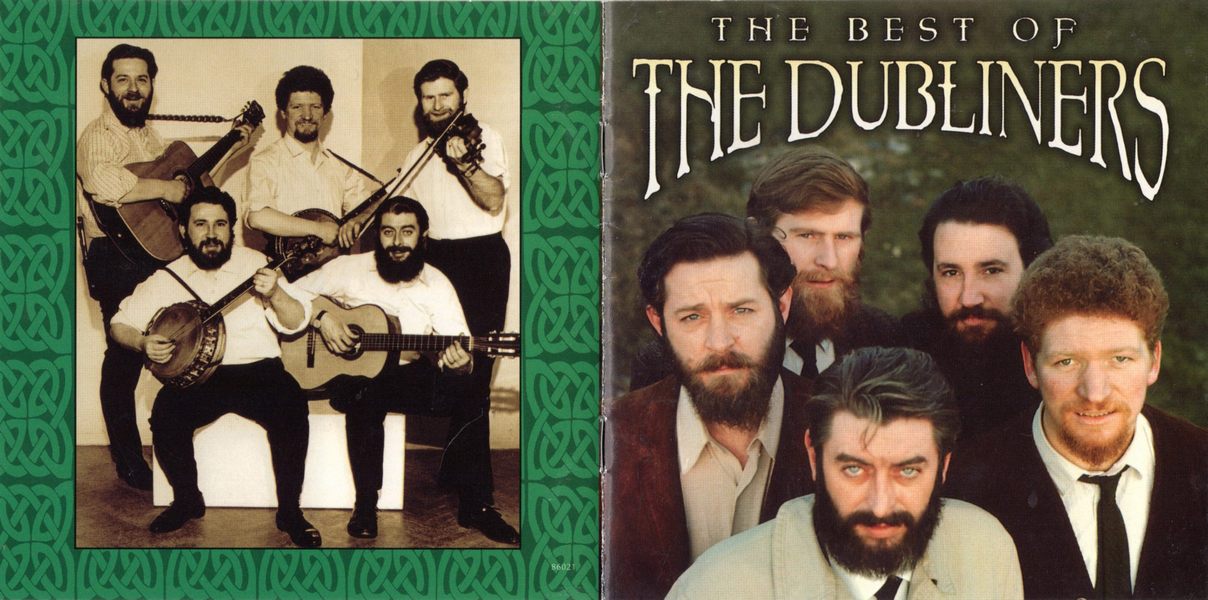
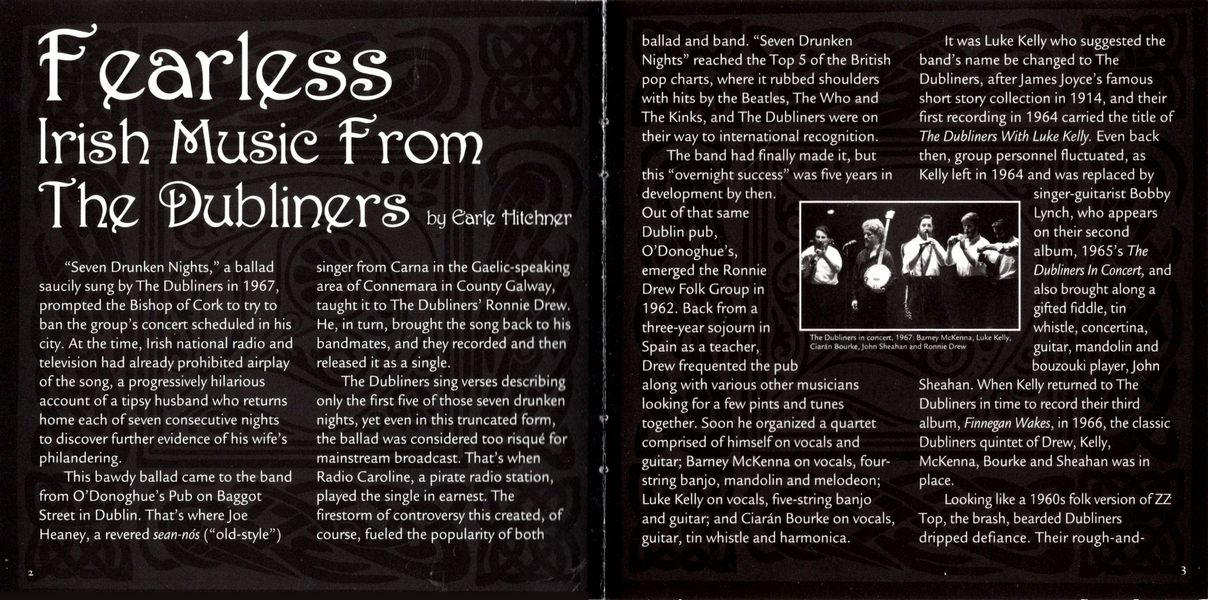 |
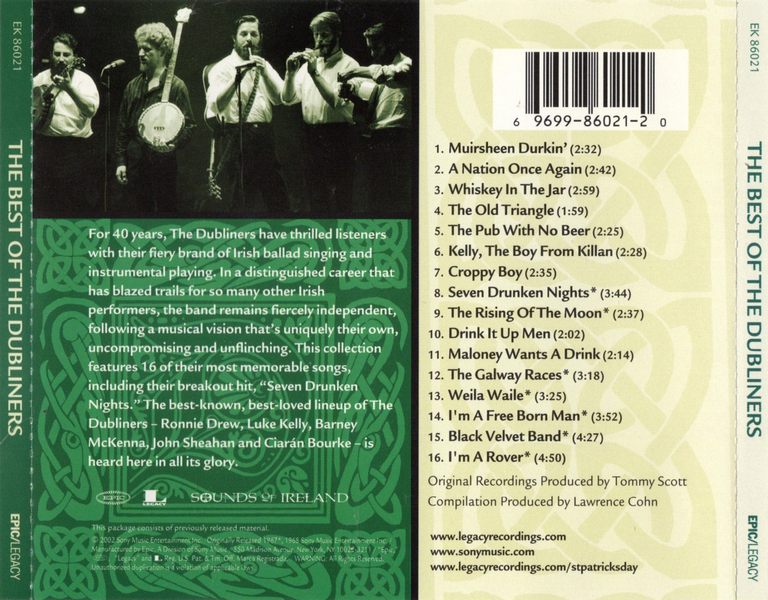
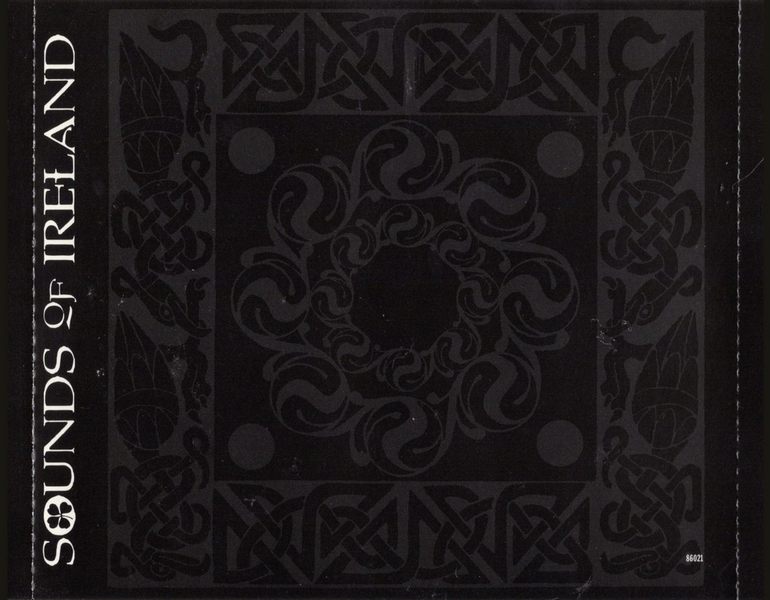
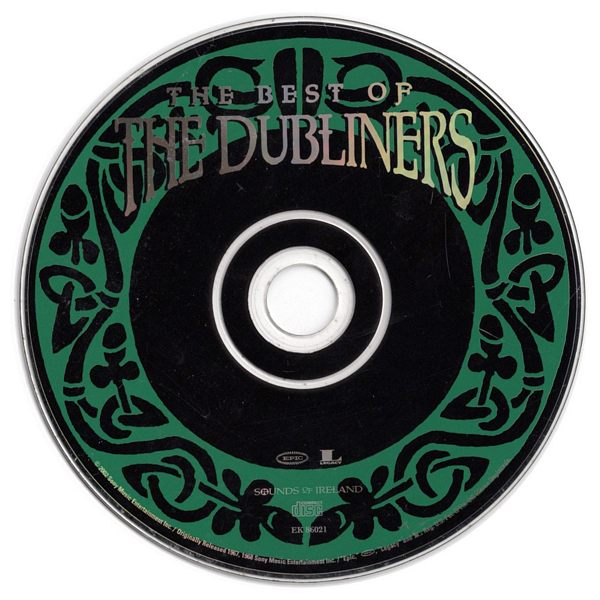
|
| more images |
Sleeve Notes
Fearless — Irish Music from The Dubliners by Earle Hitchner
"Seven Drunken Nights," a ballad saucily sung by The Dubliners in 1967, prompted the Bishop of Cork to try to ban the group's concert scheduled in his city. At the time, Irish national radio and television had already prohibited airplay of the song, a progressively hilarious account of a tipsy husband who returns home each of seven consecutive nights to discover further evidence of his wife's philandering.
This bawdy ballad came to the band from O'Donoghue's Pub on Baggot Street in Dublin. That's where Joe Heaney, a revered Sean-nós ("old-style") singer from Carna in the Gaelic-speaking area of Connemara in County Galway, taught it to The Dubliners' Ronnie Drew. He, in turn, brought the song back to his bandmates, and they recorded and then released it as a single.
The Dubliners sing verses describing only the first five of those seven drunken nights, yet even in this truncated form, the ballad was considered too risqué for mainstream broadcast. That's when Radio Caroline, a pirate radio station, played the single in earnest. The firestorm of controversy this created, of course, fueled the popularity of both ballad and band. "Seven Drunken Nights" reached the Top 5 of the British pop charts, where it rubbed shoulders with hits by the Beatles, The Who and The Kinks, and The Dubliners were on their way to international recognition.
The band had finally made it, but this "overnight success" was five years in development by then. Out of that same Dublin pub, O'Donoghue's, emerged the Ronnie Drew Folk Group in 1962. Back from a three-year sojourn in Spain as a teacher, Drew frequented the pub along with various other musicians looking for a few pints and tunes together. Soon he organized a quartet comprised of himself on vocals and guitar; Barney McKenna on vocals, four-string banjo, mandolin and melodeon; Luke Kelly on vocals, five-string banjo and guitar; and Ciarán Bourke on vocals, guitar, tin whistle and harmonica.
It was Luke Kelly who suggested the band's name be changed to The Dubliners, after James Joyce's famous short story collection in 1914, and their first recording in 1964 carried the title of The Dubliners With Luke Kelly. Even back then, group personnel fluctuated, as Kelly left in 1964 and was replaced by singer-guitarist Bobby Lynch, who appears on their second album, 1965's The Dubliners In Concert, and also brought along a gifted fiddle, tin whistle, concertina, guitar, mandolin and bouzouki player, John Sheahan. When Kelly returned to The Dubliners in time to record their third album, Finnegan Wakes, in 1966, the classic Dubliners quintet of Drew, Kelly, McKenna, Bourke and Sheahan was in place.
Looking like a 1960s folk version of ZZ Top, the brash, bearded Dubliners dripped defiance. Their rough-and-tumble appearance and demeanor mirrored an inner belief that Irish music should be schmaltz-free and honest, that it should come from the gut and heart rather than from sterile calculation. Emphatically unslick, The Dubliners resisted the homogenized folk music gaining widespread acceptance in the late 1960s. Their strong, gruffly expressive vocals blended with skilled instrumental playing to produce a sound wholly their own: gritty, edgy, cheeky.
That signature sound, later copied shamelessly by other ballad groups, is heard throughout The Best Of The Dubliners. This compilation captures the best-known, best-loved lineup of the band — Drew, Kelly, McKenna, Bourke and Sheahan — in peak performance on 16 songs, including their breakout hit, "Seven Drunken Nights."
Ciarán Bourke lends his lilting lead voice to "Drink It Up Men," a prehangover homage to liquor, and the stirring, sandpapery singing of Ronnie Drew dominates such other humorous tippling songs as "Maloney Wants A Drink," written by Dominic Behan, and "The Pub With No Beer," set to a swaying waltz tempo with Sheahan on fiddle and McKenna on banjo. Drew impressively shifts to the more serious, however, on "Croppy Boy," about a young rebel from Wexford who's captured and hung by government troops in 1798, and on "The Old Triangle," composed by another famous Behan, Brendan, and based on his stay in Dublin's Mountjoy Jail.
But it is the passionate, soaring lead singing of Luke Kelly that graces the majority of songs on this compilation. Even a sing-along as familiar as "Whiskey In The Jar" is transformed through his flawless phrasing. In overtly political or socially conscious songs, Kelly conveys a depth of feeling rarely heard from any ballad singer. "A Nation Once Again," written by Thomas Davis, a leader of the Young Ireland movement in the 1840s, is sung with just the right balance of conviction and hope by Kelly.
He also gives searing renditions of "The Rising Of The Moon," another song about the Wexford rebellion of 1798, and "I'm A Free Born Man," an Ewan MacColl composition touting the liberty enjoyed by "every tinker, rolling stone, and gypsy rover" on the open road.
Over the years the lineup of The Dubliners has changed many times. Luke Kelly (cancer) and Ciarán Bourke (complications from an aneurysm) died within four years of each other, in 1984 and 1988, and founding member Ronnie Drew departed for a solo career in 1995. Only John Sheahan and Barney McKenna, a tenor banjoist of enormous skill and influence, remain from the late ‘60s group in the current quintet, rounded out by Seán Cannon, Eamonn Campbell and Paddy Reilly.
Twenty years after their careermaking hit, "Seven Drunken Nights," another single by the band entered the British pop chart's Top 10: "The Irish Rover." Fittingly, it was a 1987 collaboration between The Dubliners and an Irish punk-trad band they partly inspired, the Pogues.
Forty years after their humble start in O'Donoghue's Pub, The Dubliners are still going strong — touring, recording and making new converts. The band hasn't gone out of fashion because they never strove to be in fashion. They bring a Gael force of personality to performing that is impossible to resist, and what they took from Irish music is what they gave back to it: zest and zeal. It's the reason these 16 songs still pulse with the vitality of the band who recorded them.
— A noted expert on Celtic music, Earle Hitchner has written for The Wall Street Journal, Billboard and Irish Echo, among many other publications.